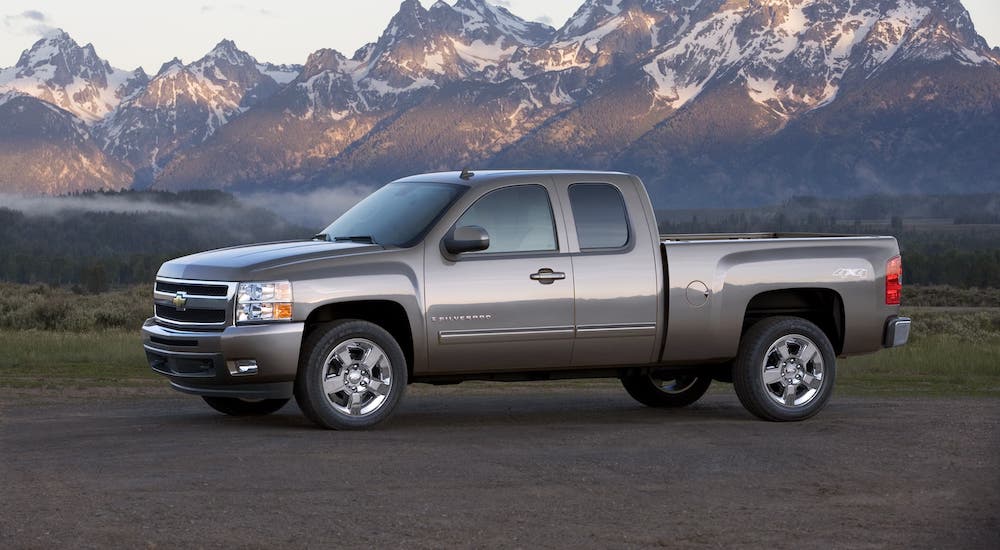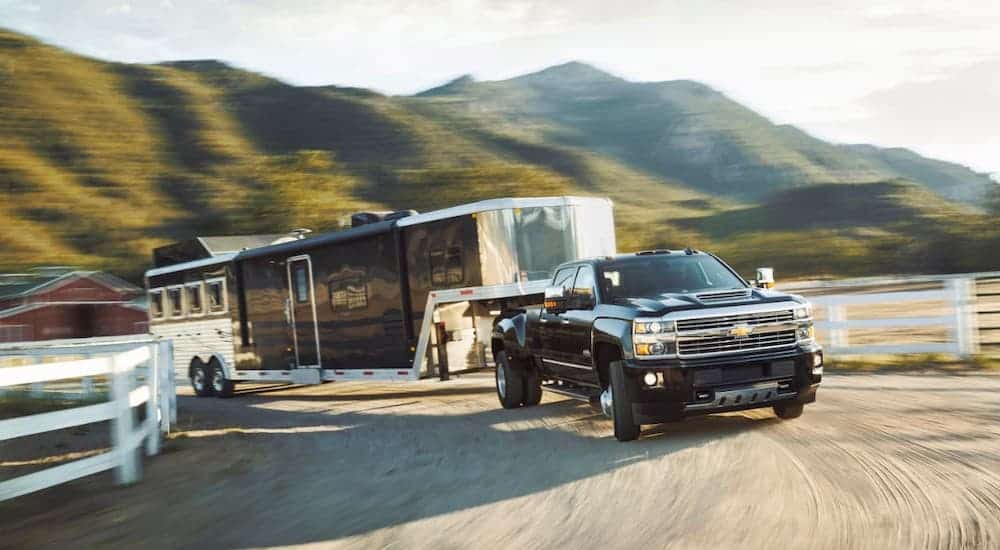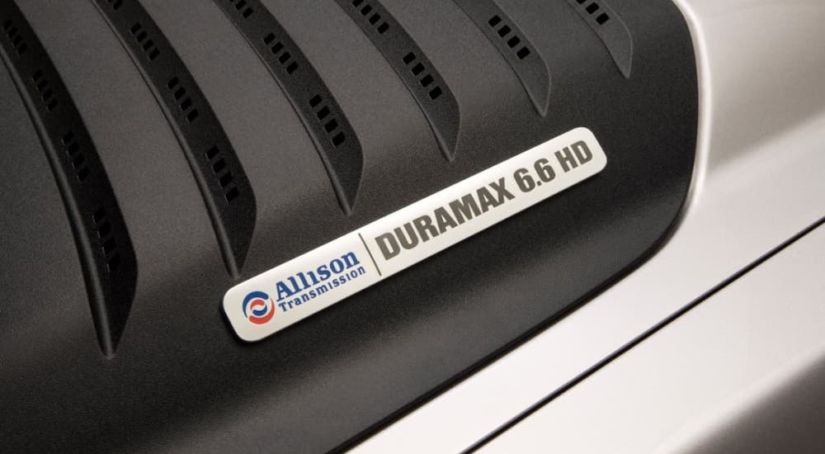When it comes to midsize and heavy duty trucks, you may have noticed that there are always multiple engine options. Inevitably, one of those engine options is a diesel or turbo-diesel. In fact, in the rare instances in which a diesel option is not offered, fans of that particular truck immediately take to the internet to discuss their feelings about the manufacturer’s choice. For those just starting to shop around at their local used Chevy diesel truck dealer or just joining the diesel crowd, this might be a little confusing.
Why does everyone get so excited about Chevy’s diesel trucks in particular? It’s another type of engine, right? You don’t use regular gas, but then what? There are several reasons why Chevy diesel trucks have such a following, but every individual fan has a different take on the matter. Between a rich history and a whole lot of power, there’s a lot to like about diesel. Thankfully, Chevrolet fans can take comfort in knowing that diesel options are still very much on the table, even in light-duty trucks, thanks to the 2020 Silverado. If you’re new to Chevy trucks or just need validation for your turbo-diesel habit, read on!
The Engine in My Used Chevy Diesel Truck (Or, a History of Diesel)

By now, many people have heard that the diesel engine in the 2020 Silverado 1500 is the first diesel Chevrolet has offered in a light-duty truck since 1997. But why was diesel off the table for so long, and why did Chevy bring it back? You may have heard a few contorted versions of that announcement, so let’s review the facts.
Life in the 1980s was very different from today. Reagan was president, MTV played music videos, and diesel engines were available in cars. At the time, fuel consumption was a big concern, less for environmental reasons than because of tense relationships between the United States and the Organization of Arab Petroleum Exporting Countries (OAPEC). This led to Congress passing the Emergency Petroleum Allocation Act in November 1973, the Energy Policy and Conservation Act of 1975, and the establishment of the Department of Energy in 1977.
In response to government pressure to create more fuel-efficient vehicles to reduce our reliance on foreign fossil fuels, American automotive manufacturers began to find new ways to improve fuel economy. This included the addition of diesel engines to their regular lineup of consumer cars and trucks. In fact, the introduction of diesel engines to Chevrolet light-duty pickup trucks occurred in 1982, with a 6.2L, 130 horsepower, 240 lb-ft of torque version that was based on the engine General Motors produced for Oldsmobile (which was also a pretty big deal in the 1980s). This engine had a fuel economy between 15 and 20 miles per gallon, which gave it an advantage over its competitors.
These engines aren’t beloved by all, however. Turbo-diesel was almost entirely exclusive to Mercedes and Volkswagen, so trucks with diesel engines took a little longer to accelerate. Standard diesel engines were also temperamental to hot and cold temperatures, which made them impractical for a lot of drivers. But for many drivers, the combination of an impressive fuel economy and a workhorse powertrain was a perfect fit.
The next iteration of Chevy diesel comes in 1992. Chevrolet made a lot of changes that year, including body style changes, the addition of the Heavy Duty designation, and updates to their diesel engine option. This resulted in a 6.5L turbocharged diesel that produced between 180 and 190 horsepower and around 380 lb-ft of torque. That meant a little more zip, a little more pep, and a lot more power.
Around the turn of the century, diesel had proven itself as a permanent fixture, so Chevrolet made greater engineering investments in improving diesel technology. The diesel engine of the early 2000s had to be strong, dependable, and economical. General Motors teamed up with Isuzu to create a lighter, faster, and more powerful diesel engine, known as the Duramax. With 235 horsepower and 500 lb-ft of torque, this was the start of something special, indeed, but it was relegated to the HD big boys only. The Chevy light-duty truck would have to wait a bit longer for its diesel moment in the sun.
The Modern Chevy Diesel Truck
When rumors started circulating that diesel was coming back to Chevy’s non-HD, non-commercial trucks, the crowd went wild. The internet was immediately ablaze with speculation and spoilers. In July 2019, Chevrolet put those rumors to rest by confirming that the 2020 Silverado 1500 would once again be offered with a diesel engine option. Specifically, a 3.0L Duramax turbo-diesel.
This diesel engine was destined to be everything the early engines of the 80s tried to be. With 277 horsepower and 460 lb-ft of torque, the all-wheel drive Silverados would be able to handle a 1,870 pounds of payload and tow up to 9,300 pounds. Best of all, the fuel economy puts those early 80s models to shame. The rear-wheel drive models offer 23 miles per gallon city and 33 miles per gallon highway – unbelievable figures for pickup trucks. All wheel drive fuel economy drops a bit to 29 miles per gallon highway while still maintaining 23 miles per gallon city.
If you’re new to the diesel scene, you might be thinking, “ok, but is that good?” Let’s compare these stats of the most common Silverado engine, a very capable and reasonable 4.3L V6. This engine can tow up to 7,900 pounds and has a fuel economy of 16 miles per gallon city and 21 miles per gallon highway. The 6.2L V8 engine option can tow more – up to 13,400 pounds – but it doesn’t provide much in the way of fuel economy with 16 miles per gallon city and 21 miles per gallon highway. Therefore, if you’re looking for the sweet spot where power meets efficiency without sacrificing fun, the 2020 Chevrolet Silverado 1500 diesel engine is the right choice for you. Luckily, as the 2021 Chevy Silverado is on the market, you are going to be able to start finding used 2020 models at your local used dealership.

Is Diesel Really That Awesome?
For diesel die-hards, the combination of all the best things about a truck makes everything worth it. At the same time, there are a few things about diesel that some people don’t love. Yes, diesel trucks require specific diesel fuel. Oftentimes, the balance between diesel fuel costs and your truck’s consumption saves a significant amount of money over time, which is one of the primary things people love about diesel trucks.
They are sensitive to cold temperatures, and you’ll quickly learn about winterized fuel. You can look into an engine block heater to help with this situation, too. But the diesel engines of the 21st century differ significantly from the early models.
The gap between gas horsepower and diesel horsepower has gotten pretty thin, and most trucks are equipped with turbo-diesel to get you where you need to go. Furthermore, the torque numbers on most diesel engines are out of this world. That’s the figure that helps you know if a truck can get a job done. If you’re towing heavy loads, hauling a lot of stuff, or driving serious distances, that high torque and extra miles per gallon will mean a lot to you.
So, Is Diesel Better Than Gas?
It’s impossible to say that diesel is always better than gas because drivers are looking for different things in their trucks. Thankfully, Chevrolet offers several engine options, bed and cab configurations, trims, and capabilities to accommodate every driver. There’s a reason used Chevy trucks are so popular with people who have to get a job done, and it’s because these trucks are each designed to meet driver’s needs in their own unique way. If you’re headed out to check out a used Chevy truck at your neighborhood dealership, give it a fair test. Compare it to a gas model or two. You might just catch the diesel fever.



